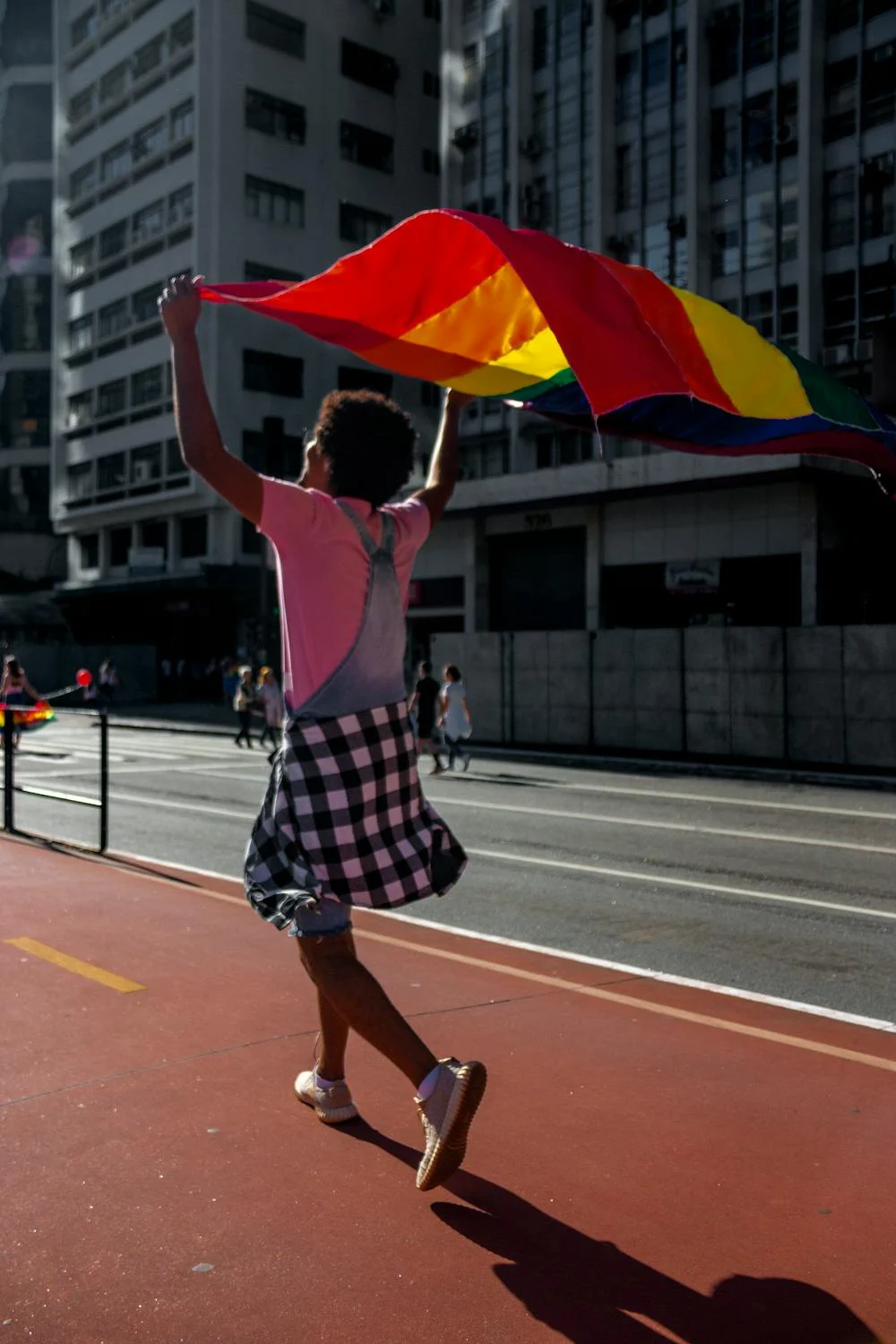
A few lessons I learned on this journey
Come the month of June, when rainbows decorate the streets, and we often find ourselves contemplating our place in it all. The answer, if sought, can be simple: be an ally. I discovered the power of allyship when a close friend opened up and shared the truth—I am a lesbian. At first, I was taken aback, as I had never considered this possibility. But at that moment, I realized that my friend's journey was not about me; it was about them, their struggle for self-acceptance, and their longing to be embraced for who they truly are.
Listening to their story, my heart swelled with empathy. They shared the challenges they had faced, the fears they had endured, and the vulnerability they displayed by entrusting me with their truth. In that instant, a spark ignited within me—a deep sense of responsibility and a yearning to become an ally. It became clear that passive acceptance was insufficient; I needed to support and advocate for their rights and well-being actively.
Driven by a thirst for knowledge, I embarked on a quest to educate myself about the experiences and struggles of the LGBTQIA+ community. I delved into books, attended workshops, and conversed with community members. I discovered that the World Health Organization identifies LGBTQIA+ individuals at higher risk of suicide. As I deepened my understanding, I recognized the importance of intersectionality and the diverse challenges individuals face at the crossroads of gender, race, religion, and more. I confronted my biases, challenging the heteronormative beliefs ingrained in me by society, and actively worked to dismantle them. I engaged in conversations, gently educating friends and family, planting seeds of acceptance and compassion.
Yet, I realized that my journey extended beyond supporting my friend; it was a commitment to something greater. We can be reliable allies by creating a safe and accepting environment, actively listening to their experiences, respecting their chosen pronouns and identities, and educating ourselves about LGBTQIA+ issues.
Here are a few lessons I learned on this journey, guiding us to stand by our friends, embrace diversity, celebrate authenticity, and empower individuals to live their truth with pride:
- Understand: Coming out is a deeply personal journey, and everyone's experience is unique. Approach each situation with an open mind and heart, honouring their individuality and cultural background. Recognize the additional layers of identity, such as race, religion, and gender, which may impact their coming out process. Assure them of your unconditional support, regardless of their sexual orientation or gender identity. Something as simple as using correct pronouns can make a significant difference.
- Create a safe environment: Show through your actions that you are a safe and non-judgmental person to confide in. Demonstrate empathy and let them know you are there to support them unconditionally.
- Educate yourself: Take the initiative to learn about different aspects of LGBTQIA+ identities, experiences, and challenges. This knowledge will help you better understand their perspective and provide informed support. Most importantly, recognize and confront your biases, trying to unlearn them.
- Practice active and empathic listening: Give them space to express their thoughts, emotions, and concerns without interruption. Show empathy and validate their experiences. Avoid judgment or dismissing their feelings.
- Respect their independence: Coming out is a personal process, not a certificate, and the timing and manner of coming out should be up to the individual. Encourage them to come out when and if they feel ready, and respect their decision if they're not comfortable sharing with everyone immediately.
- Provide resources and information: Share relevant resources, such as LGBTQ support groups, organizations, books, or online communities. Knowing that resources are available can help them feel less alone and more empowered.
- Encourage self-care: Coming out can be emotionally challenging, so encourage them to prioritize self-care. This may involve therapy, joining LGBTQIA+ social groups, pursuing hobbies, or practising mindfulness techniques.
- Be an ally: Advocate for LGBTQIA+ rights and equality through your actions and conversations. This demonstrates ongoing support and helps create a more inclusive and accepting environment for them and others in the LGBTQIA+ community. Choose to be an ally and support them even when no community member is present.
- Professional help: If they are struggling with their mental health or facing significant challenges, suggest seeking professional help from therapists or counsellors specialising in LGBTQIA+ issues.
Through my journey as an ally, I realized that supporting the LGBTQIA+ community was not merely about words or gestures but about embodying love, empathy, and understanding. It was about recognizing the humanity in each individual and celebrating their right to live a life free from discrimination and judgment. Together, we can build a more inclusive and equitable world.
Remember, allyship is a continuous journey of growth and learning. Let us embrace diversity, stand with our friends, and empower one another to live authentically and proudly.
This post represents the author’s personal views and experiences. iDare doesn’t endorse or take responsibility for the opinions expressed.
If you or somebody you know is facing gender-based or sexuality-based abuse, consider reaching our ‘Support’ and ‘Engage’ verticals for affordable and inclusive help!
Image Credits – pexels.com
